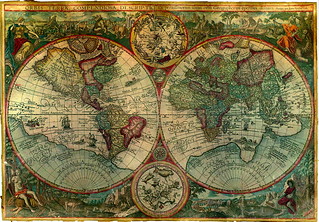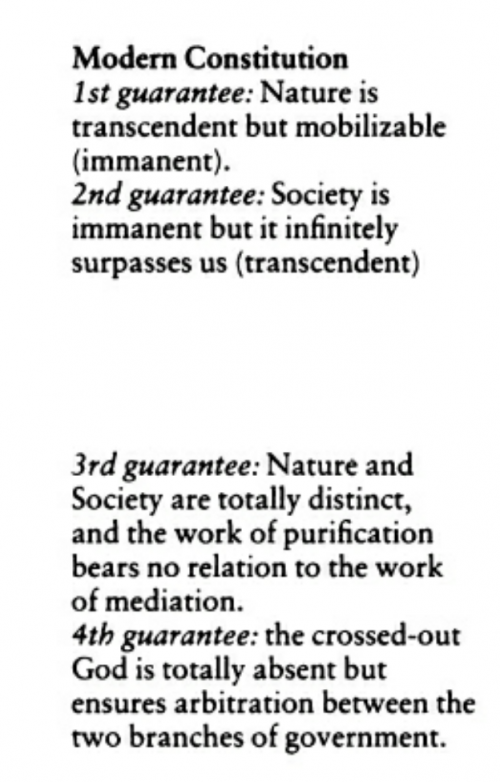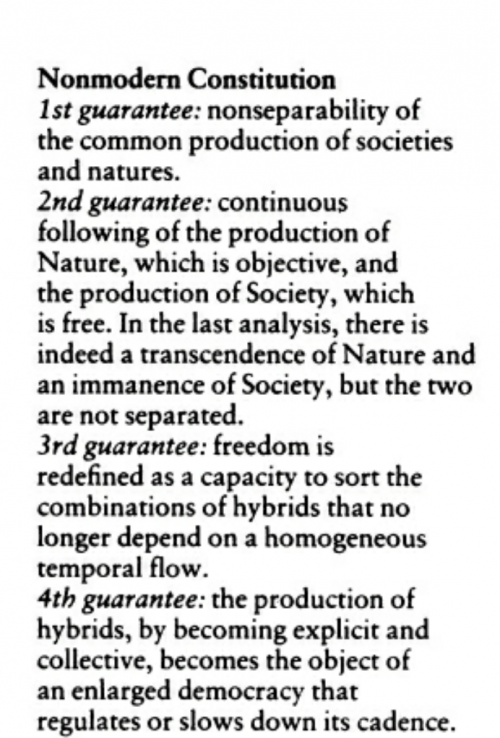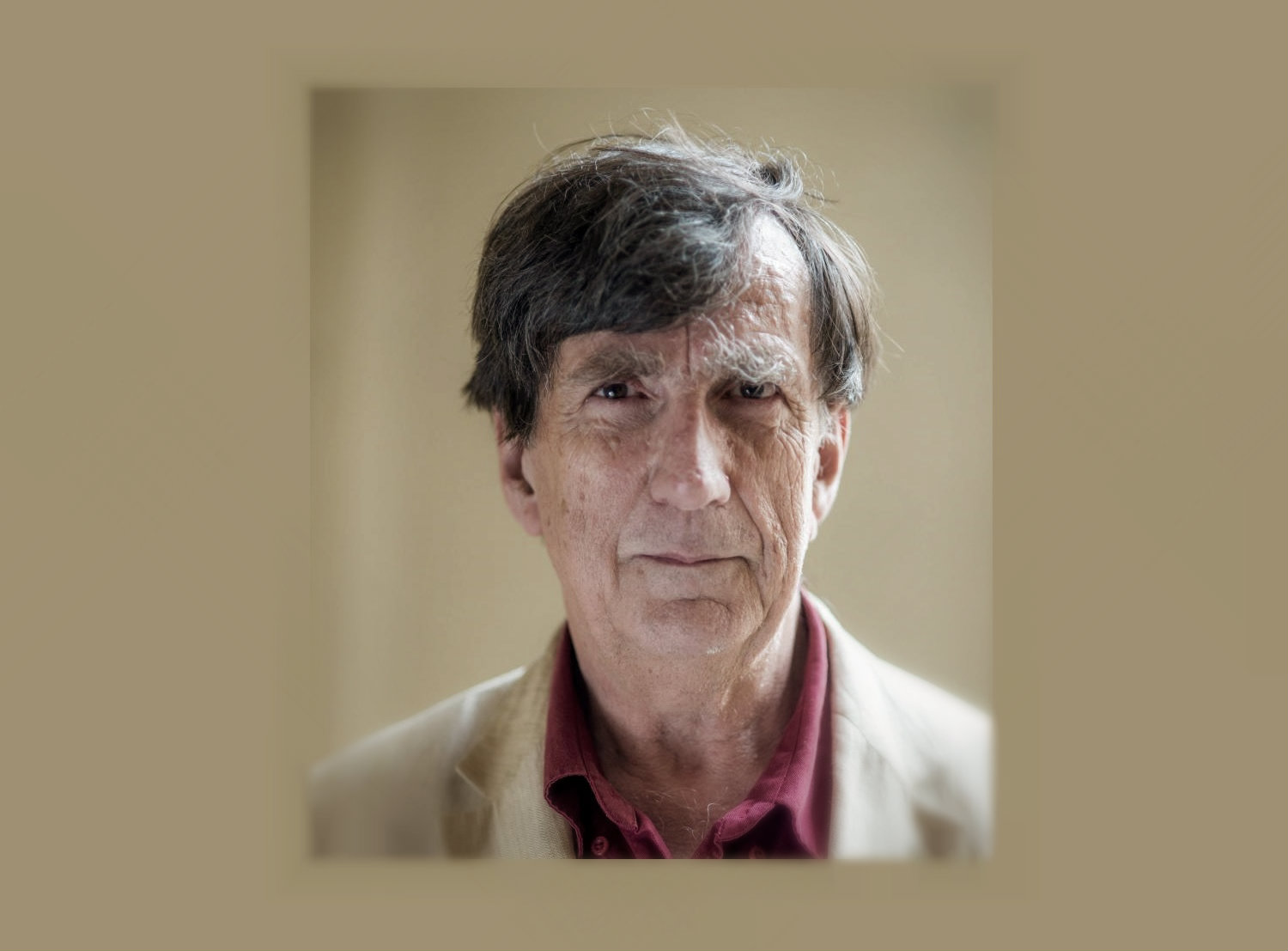The Public’s Problems In Finding Itself
The sixth and last chapter of John Dewey’s The Public And Its Problems addresses some of the obstacles to formation of a community capable of recognizing itself as a public. He doesn’t have any practical solutions. But he offers two theoretical ideas and a couple of practical steps. And he argues that community is the most human form of relationship in an almost poetic section.
1. Get rid of excessive individualism
This idea brings us back to an earlier post, in which I discussed Dewey’s rejection of social contract theory. The basic reason for this rejection is Dewey’s view that we are not human apart from the culture and society in which we find ourselves. That culture and that society formed us, gave us our language, our morals, our behavioral structure, and our self-definition. He takes this up again in Chapter 6.
We think of ourselves as individuals in a naive way. We are separate physically, and we move under our own steam. But so do animals. Every part of our psyches that is truly human comes from other humans, who tend us as babies, teach us as children, and interact with us in as adults. Certainly as separate entities we have different capacities, mental, physical, and emotional. But these only come into play when we interact with others. They only develop through our interactions with others.
Dewey uses an analogy to explain this. We know what a tree is, a plant with a trunk, branches, leaves or needles, and roots. We know that there are cells in the plant that perform certain functions, such as converting sunlight, carbon and other elements into itself. We can use this descriptive definition for some purposes.
But to say anything interesting about trees, we need to consider the earth on which they stand: the atmosphere, water, and sunlight they need for life; and the plants and insects that surround them and live in and inside them. It’s the same with humans. We cna use the common sense idea of the isolated individual human for some purposes, but to say anything interesting we need to consider the entire environment of the human, which includes other human beings.
The idea that humans exist at their fullest through their associations with other human beings is related to Dewey’s view that all that we think of as true comes from truths handed down to us from our ancestors. See, e.g. William James, Pragmatism, Lecture II.
Now Dewey and Schiller proceed to … apply [this lesson] to the most ancient parts of truth. They also once were plastic. They also were called true for human reasons. They also mediated between still earlier truths and what in those days were novel observations.
This vision of humanity links us in a web of relations with our ancestors, our contemporaries and future generations. I once sat on a hill in the Dordogne Valley outside a cave decorated with prehistoric art. The art was the product of people like me, and some kid had stuck a hand in the pigment and made a handprint under a ledge designed to hold a pool of oil and a wick. Looking across the valley, I saw wild asparagus, edible berries and grains, walnut trees, and imagined small game. Beyond them lies the great river full of fish. I’d seen the tools of my ancestors at a nearby museum. I knew a little of how they lived. I could almost feel the connection across 25,000 years. And I know that some of what I know they knew, just as some of what they knew I know.
Treating our perceived selves as isolated individuals leaves us with no real way to become the humans we actually are.
2. Philosophical theory is absolutist
Even professedly empirical philosophies have assumed a certain finality and foreverness in their theories which may be expressed by saying that they have been non-historical in character. They have isolated their subject-matter from its connections, and any isolated subject-matter becomes unqualified in the degree of its disconnection. P. 214.
Other philosophers are even worse than empiricists. I listen to The Partially Examined Life, “a podcast by some guys who set out to do philosophy for a living but then thought better of it.” They discuss the original works of a number of philosophers I will never read, like Kant and Averroes. Their descriptions of these works suggest that the writers thought their ideas were valid for all times and all places.
I suppose this was natural when people thought the universe must have a purpose laid out by its Creator. But Dewey was one of the first philosophers to take evolution seriously. He understood that the key insight of evolution theory is that there is no point to the universe. Evolution doesn’t move toward some predetermined goal. There is no direction in evolution other than survival. All evolution is the sum of the reactions of organisms to a changing environment.
Dewey thinks philosophical and ideological absolutism is dangerous.
The disciples of Lenin and Mussolini vie with the captains of capitalistic society in endeavoring to bring about a formation of dispositions and ideas which will conduce to a preconceived goal. If there is a difference, it is that the former proceed more consciously. P. 218-9.
3. Dewey’s Suggestions
From here Dewey goes into a detailed discussion of two things a properly functioning Public requires. First, the social sciences must become better and faster at free inquiry, a technical term best thought of as inquiry free of a pre-determined theory. Second, we need to educate people to the highest degree possible. These two steps will move us in the right direction.
One critical point stands out in the lengthy discussion that follows. There is no fixed set of rules. People change, societies change, technology changes, and our understanding of change changes. Our analytical tools, including our philosophy, must be formed and used for inquiry. We judge our tools by whether they do the work we want done. That’s just as true of social theory as it is of hammers. But we have to understand that any answer we come with is provisional.
… [P]olicies and proposals for social action [must] be treated as working hypotheses, not as programs to be rigidly adhered to and executed. They will be experimental in the sense that they will be entertained subject to constant and well-equipped observation of the consequences they entail when acted upon, and subject to ready and flexible revision in the light of observed consequences. P. 220.
Discussion
In the last post in this series I discussed what seems to me like the emergence of two communities in the US. One, the one I think I live in, tries to grow knowledge and understanding both of ourselves and our society, and to share that knowledge and understanding as widely as possible. The other doesn’t like that. It can’t distinguish a plausible view of the world from the world conjured up by Qhucksters and right-wing liars. The second community despises the first. Mine is utterly unable to understand the second, moving between horror, disgust and laughter at the madness it sees.
Dewey believes that education and better social science can deal with this. He wrote this book in the early days of totalitarian movements, and must have seen the potential for danger. It’s not surprising that he doesn’t have an answer. I haven’t seen anything that suggests a way to have a real dialog with a true believing follower of Trump/Cruz/Gaetz/Hawley/Greene, or with the rich and their claque.
In the next post, I’ll conclude this very long series with some final thoughts.





 I’ve been reading We Have Never Been Modern, a 1991 book by the French thinker Bruno Latour, pictured above. It doesn’t lend itself to my usual treatment, reading and commenting on a chapter or two. Instead, I’m going to try to lay out some of the aspects that seem important enough to merit discussion.
I’ve been reading We Have Never Been Modern, a 1991 book by the French thinker Bruno Latour, pictured above. It doesn’t lend itself to my usual treatment, reading and commenting on a chapter or two. Instead, I’m going to try to lay out some of the aspects that seem important enough to merit discussion.